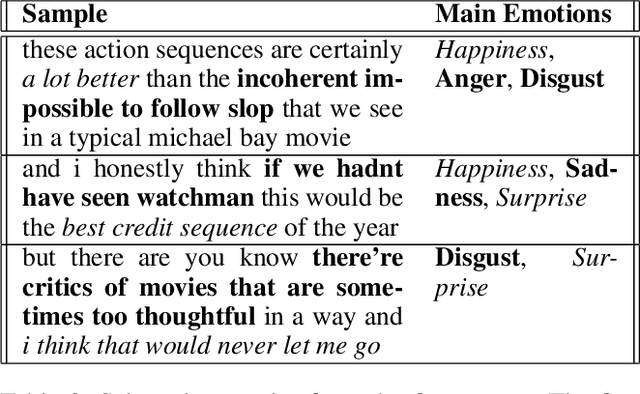SeedBERT: Recovering Annotator Rating Distributions from an Aggregated Label
Paper and Code
Nov 23, 2022



Many machine learning tasks -- particularly those in affective computing -- are inherently subjective. When asked to classify facial expressions or to rate an individual's attractiveness, humans may disagree with one another, and no single answer may be objectively correct. However, machine learning datasets commonly have just one "ground truth" label for each sample, so models trained on these labels may not perform well on tasks that are subjective in nature. Though allowing models to learn from the individual annotators' ratings may help, most datasets do not provide annotator-specific labels for each sample. To address this issue, we propose SeedBERT, a method for recovering annotator rating distributions from a single label by inducing pre-trained models to attend to different portions of the input. Our human evaluations indicate that SeedBERT's attention mechanism is consistent with human sources of annotator disagreement. Moreover, in our empirical evaluations using large language models, SeedBERT demonstrates substantial gains in performance on downstream subjective tasks compared both to standard deep learning models and to other current models that account explicitly for annotator disagreement.
 Add to Chrome
Add to Chrome Add to Firefox
Add to Firefox Add to Edge
Add to Edge